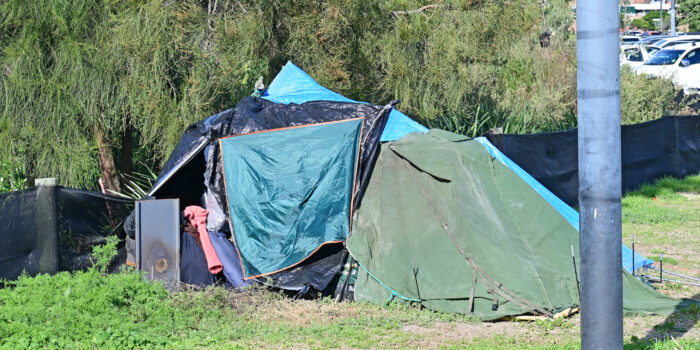When Varina Quinn was given a rural block of land her father had cut off from the family estate, it “came as an unexpected surprise”.

John Quinn’s wife of 60 years had died in 2010 and Varina was the only one of their 6 children who regularly visited.
A builder who had bought and sold houses over the years and had previously subdivided other lots from the Esk acreage, John completed and lodged the transfer documents himself in December 2011.
It didn’t take long for the seeds of regret over his “foolish decision” to ferment.
Perhaps motivated by the absence of control over her that he expected the gift to bring – or that she wasn’t providing the extent of domestic assistance anticipated – he demanded the transfer be reversed.
John launched a District Court lawsuit claiming that the gift had come about only as a result of having relented to his daughter’s “unconscionable conduct” and “constant pressure over a number of years”.
“Well, she kept on well nagging me over the years,” he said in testimony before Judge Deborah Richards in a trial that occupied the court for two days. “Maybe once or twice a year.”
His case relied on his “special vulnerability” due to the frailty and loneliness that accompanied the recent passing of his wife.
He was therefore, so his argument ran, pressured to acquiesce to Varnia’s suggestion by the daughter’s promise of assistance.
According to the judge, there was “little evidence of persistence or overbearing conduct in terms of transferring the property”.
All in all the court was not prepared to accept John was “at a special disadvantage” given his demonstration in the witness box of a clear memory, his “strength of will” and his ability to understand commercial concepts.
“In my view the plaintiff has failed to prove that the land was transferred due to unconscionable conduct,” her honour reasoned.
But was Varina’s failure to provide the expected level of home support sufficient to warrant an unwinding of the gift?
Other daughter Andrea and sons Stuart and Stephen were called to support their father’s case. Their evidence of conversations with Varina could not assist define the extent of the support she had allegedly failed to provide.
Varina – who was self-represented in the proceedings – did not dispute the obligation. Her intention was to build a home on the block and move there to provide regular household and emotional support but that course had been frustrated by her father’s vetoing of her removal house being placed on the Lakeview Drive lot.
The court agreed.
“In my view the defendants consistent attendance of the plaintiff’s house and with domestic duties and emotional support is indicative that she did intend to offer assistance,” Judge Richards ruled. “However her continuing and increasing assistance was dependent upon being able to live nearby so that she could work part-time and maintain some income”.
Judge Richards made the point that she preferred the daughter’s evidence over that of John where there was any conflict, particularly given that other arrangements he made were consistent with an un-coerced decision to make a gift of the land.
Most significantly in 2012 he made a will specifically providing that Varnia’s share in his estate be debited by the vacant block at its $90k value and his 2013 will provided that because she had already been adequately provided for, no further bequest was made.
And Varina signed an agreement that she would keep the title of the property in the Quinn family and would forever allow all Quinns access to the their mother’s grave site on the land.
Although in the words of the judge “with the benefit of hindsight the gift may have been imprudent,” Mr Quinn failed to make out any part of his case that the gift was improperly obtained.





